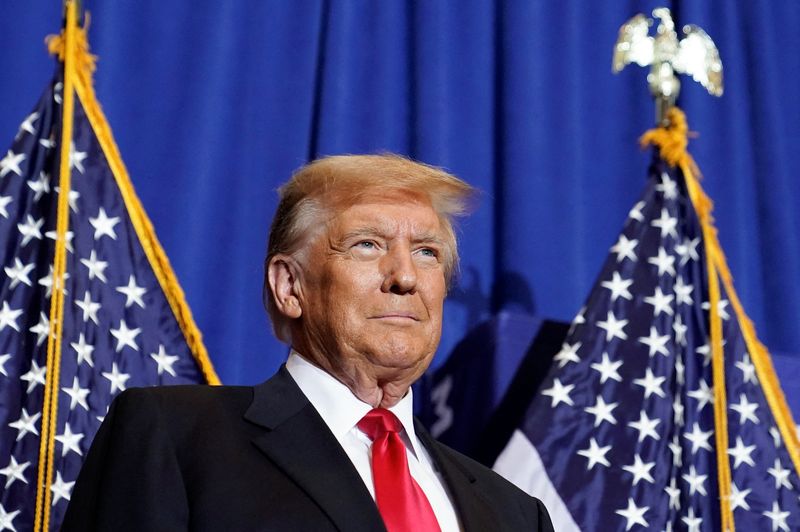By Andrew Goudsward
WASHINGTON (Reuters) -A Maine court on Wednesday said the state should wait for the U.S. Supreme Court to rule on Donald Trump's appeal of his disqualification from Colorado's Republican primary ballot before reevaluating a similar decision in the northeast state.
Maine State Superior Court Judge Michaela Murphy ordered Maine Secretary of State Shenna Bellows, a Democrat, to reassess her decision to bar the former U.S. president from the primary ballot within 30 days after the Supreme Court rules.
Murphy found that the Supreme Court’s decision to take the Colorado case "changes everything about the order in which these issues should be decided, and by which court."
Bellows in December determined that Trump, the frontrunner for the 2024 Republican presidential nomination, was ineligible to hold office again under a provision in the U.S. Constitution that bars people who have engaged in “insurrection or rebellion” from holding office.
A Bellows spokesperson said her office is reviewing the decision and had no additional comment. A Trump spokesperson called the ruling a "correct action."
"We remain steadfast in our opposition to these bad-faith shams," the spokesperson said, referring to challenges to Trump's candidacy.
The ruling on Wednesday increases the stakes of what was already expected to be a politically explosive ruling from the U.S. Supreme Court on Trump's eligibility to return to the White House. Oral arguments are scheduled for Feb. 8.
Murphy wrote in her ruling that the Supreme Court will hopefully "clarify" the role of state officials and courts in addressing ballot challenges under the U.S. Constitution.
Depending on the sweep of its ruling in the Colorado case, the U.S. Supreme Court could resolve the issue nationwide in the coming weeks.
Maine's primary is scheduled for March 5.
Maine and Colorado are so far the only two states to disqualify Trump under the constitutional provision, known as Section 3 of the 14th Amendment. Both states have put their decisions on hold while Trump appeals.
Courts and election officials in several other states have rejected similar ballot challenges to Trump’s candidacy.
Bellows granted a petition from a group of former Maine lawmakers who sought to disqualify Trump. She concluded Trump incited an insurrection in an attempt to hold onto power following his defeat in the 2020 election, culminating in the Jan. 6, 2021, attack on the U.S. Capitol.

Trump appealed the ruling, saying Bellows was biased against him and that he did not have the ability to properly defend himself. He denied engaging in insurrection.
Trump has decried the ballot challenges as an undemocratic attempt at election interference by his political adversaries. Proponents of disqualification have argued that holding Trump accountable under the constitution supports democratic values.